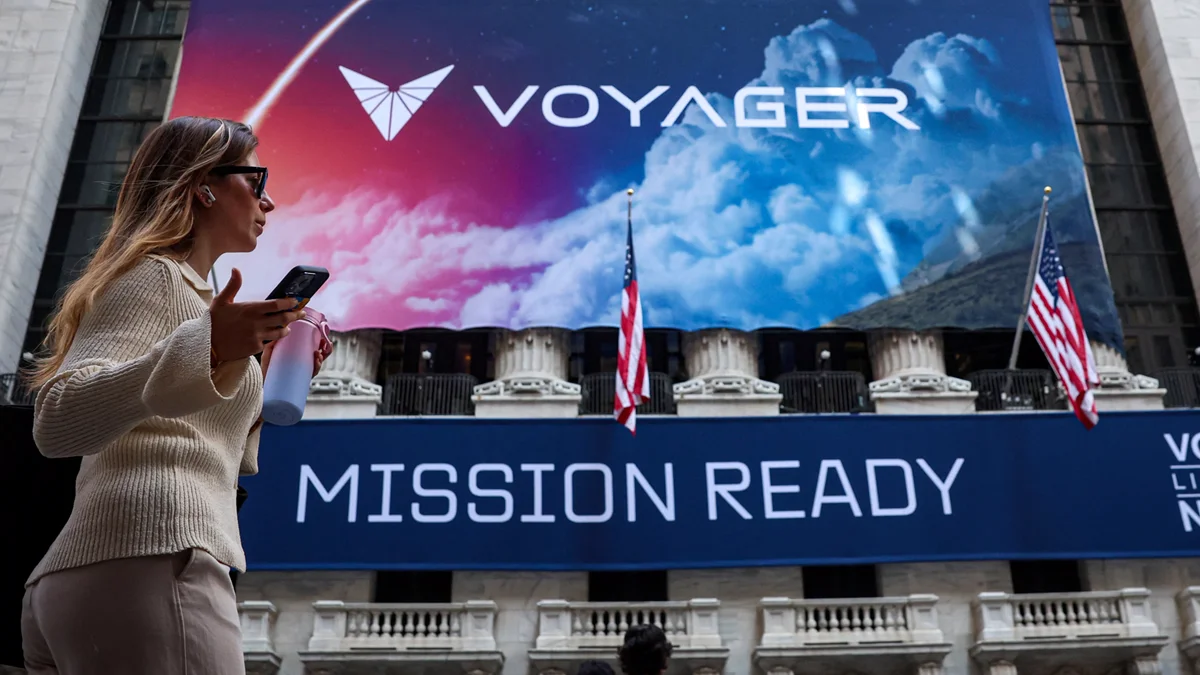Necessary Always Active
Necessary cookies are required to enable the basic features of this site, such as providing secure log-in or adjusting your consent preferences. These cookies do not store any personally identifiable data.
|
||||||
|
||||||
|
||||||
|

Voyager Technologies plans to raise approximately $319 million through an Initial Public Offering (IPO), which could value the company at $1.6 billion, according to its filing with the U.S. Securities and Exchange Commission (SEC), as reported by USA Herald. This shows how investors are becoming more interested in companies working in defense and space technology.
The company started in 2019 as Voyager Space, focusing mainly on space projects. But it recently changed its name to Voyager Technologies to show a shift in focus. Now, it is also working on advanced defense systems like precision-guided missiles and interceptor technology.
Voyager made its stock market debut on the New York Stock Exchange (NYSE) under the ticker symbol “VOYG.” The company priced its IPO shares at $31, which was already higher than expected.
One of Voyager’s most famous projects is Starlab, a commercial space station in low-Earth orbit. The project received $200 million in funding from NASA and is being developed with help from major partners like Airbus, Mitsubishi, MDA Space, and Palantir.
An early investor from Marlinspike Ventures shared their excitement, saying, “We believe this is a once-in-a-generation opportunity to align U.S. technological superiority with a growing appetite for defense and space innovation.”
On the first day of trading, Voyager’s stock opened at $69.75, a huge jump of 125% above the IPO price. Shares ended the day at $56.48, up 82%. However, the next day, the stock price dropped by 12%, closing at $49.50.
Despite the dip, the company raised about $383 million by selling over 12 million shares. Although it originally aimed for a valuation of $1.6 billion, Reuters reported that Voyager’s market value had already reached $3.8 billion after the first day of trading.
Well-known banks like Morgan Stanley and JPMorgan helped lead the IPO. The offering attracted several investors who focus on defense and military tech, such as SpaceFund, Industrious Ventures, Marlinspike Ventures, and Scout Ventures. These investors believe companies like Voyager will become more important as global interest in defense and space exploration grows.
Voyager’s IPO success is part of a growing trend where companies focused on space and defense are going public. Other companies, like Rocket Lab, have done the same in recent years. Voyager plans to use the money it raised to invest in research and development (R&D), buy new assets, consider mergers, and pay off some of its debts.
Government support is also helping the company, as both the Biden and Trump administrations have increased spending on defense programs, missile systems, and space missions. A massive project like the $175 billion “Golden Dome” missile shield is an example of how important this area has become.
Voyager is also involved in building a new commercial space station to replace the International Space Station (ISS), which may retire around 2030. The company also works with Lockheed Martin on missile defense systems.
Even though Voyager is growing fast, it still faces some challenges. In the last quarter, it earned $34.5 million in revenue, a 14% increase from the same time last year. However, it also reported a loss of $26.9 million, and the company has a contract backlog of $179.2 million. But experts warn that market conditions can change quickly, and the IPO window might close soon.
Still, Voyager’s strong start shows that there is big potential for military tech investment and space innovation. With the right partnerships and continued support from the U.S. government, Voyager could become a major name in national security and space infrastructure in the coming years.